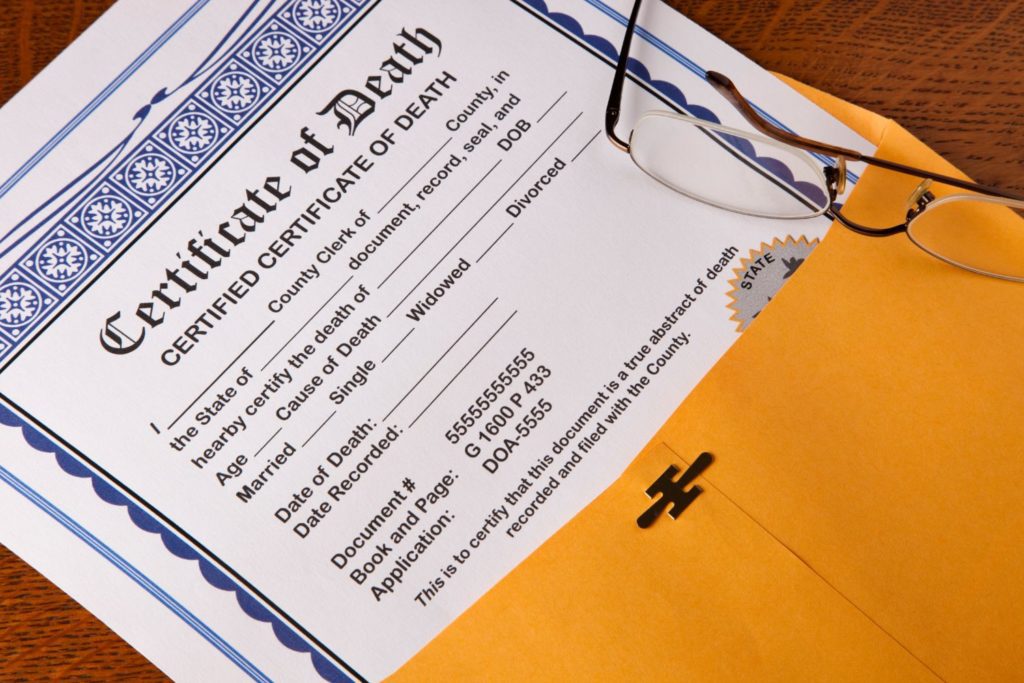Dealing with the loss of a loved one is challenging, and handling the necessary paperwork can be overwhelming. One important document you’ll need is the death certificate. Knowing when to ask for a copy of the death certificate is crucial for managing legal and financial matters.
We’ll cover the various reasons why you might need a death certificate, the best times to request it, and detailed steps on how to obtain one. By understanding this process, you can navigate these difficult moments with more confidence and ensure that you fulfill all necessary legal requirements. So, find a quiet, comfortable spot, and let’s navigate this sensitive but essential process together.
Reasons You Might Need a Death Certificate
Settling Estates
A death certificate is often required to settle the deceased’s estate, including distributing assets and handling debts. Executors and administrators will need this document to carry out their duties.
Life Insurance Claims
Life insurance companies require a death certificate to process claims and disburse funds to beneficiaries. This is a standard part of the claims process.
Social Security Benefits
If the deceased was receiving Social Security benefits, you’ll need a death certificate to notify the Social Security Administration and potentially apply for survivors’ benefits.
Bank and Financial Accounts
To access and close the deceased’s bank and financial accounts, institutions will typically require a death certificate as proof of death.
Government and Pension Benefits
Government agencies and pension providers will require a death certificate to transfer or terminate benefits and entitlements.
Final Arrangements
Funeral homes and crematoriums often require a death certificate to proceed with final arrangements and to comply with legal requirements.
When to Ask for a Death Certificate
Immediately After the Death
It’s advisable to request a copy of the death certificate as soon as possible after the death. This ensures you have the necessary documentation to handle immediate legal and financial matters.
When Handling Estate Matters
If you are the executor or administrator of the estate, request the death certificate early in the process to avoid delays in settling the estate.
Before Filing Claims
Before filing life insurance, pension, or other benefit claims, ensure you have a copy of the death certificate ready to submit with your applications.
When Closing Accounts
To close bank accounts, credit cards, and other financial accounts, request the death certificate as part of your documentation to provide proof of death.
For Legal and Administrative Purposes
If you anticipate needing the death certificate for various legal or administrative purposes, request multiple copies to have on hand.
How to Request a Death Certificate
Contact the Vital Records Office
Death certificates are typically issued by the vital records office in the state or county where the death occurred. Contact them to understand their specific process for requesting a death certificate.
Provide Required Information
When requesting a death certificate, you will need to provide certain information, such as:
- Full name of the deceased
- Date and place of death
- Your relationship to the deceased
- Reason for the request
Submit Identification
You may be required to provide identification to prove your relationship to the deceased and your legal right to request the death certificate. This can include a driver’s license, passport, or other government-issued ID.
Pay Applicable Fees
There is usually a fee associated with obtaining a death certificate. Fees can vary by state and county, so check the specific requirements of the issuing office.
Request Multiple Copies
Consider requesting multiple copies of the death certificate, as you may need to submit them to various institutions and agencies.
Use Online Services
Some states and counties offer online services for requesting death certificates. Check if this option is available and convenient for you.

Common Mistakes to Avoid
Waiting Too Long
Avoid delaying the request for a death certificate, as it can cause delays in managing the deceased’s affairs and settling the estate.
Not Requesting Enough Copies
Ensure you request enough copies to handle all legal, financial, and administrative matters. It’s often more convenient to request multiple copies upfront.
Incomplete Information
Provide complete and accurate information when requesting the death certificate to avoid processing delays.
Not Verifying Fees and Requirements
Check the specific fees and documentation requirements of the issuing office to ensure you submit everything needed for a smooth process.
Ignoring Online Options
Many vital records offices offer online requests, which can be more convenient and faster than in-person or mail requests. Check if this service is available in your area.
Requesting a copy of the death certificate is a crucial step in managing the legal and financial affairs of a deceased loved one. By understanding when and how to request this important document, you can ensure a smoother process during a challenging time. Remember to gather all necessary information, request multiple copies, and contact the appropriate vital records office as soon as possible.

